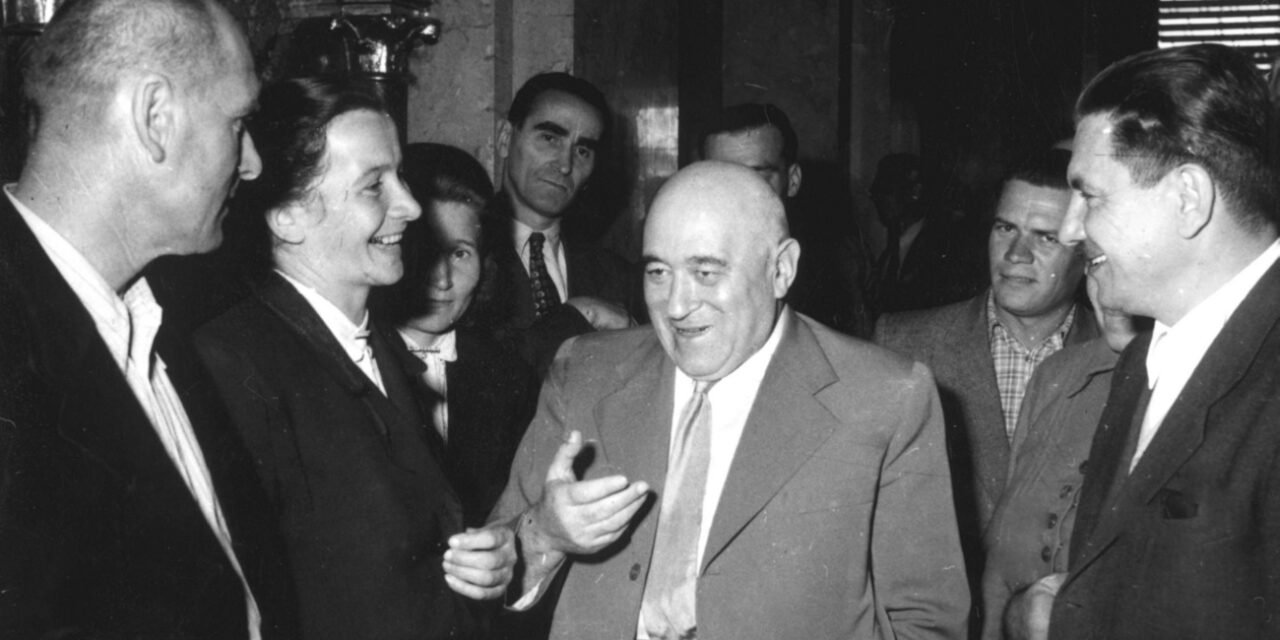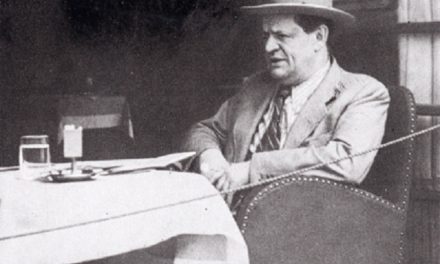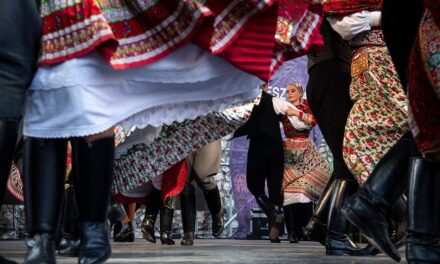The historian Zsuzsanna Borvendég's series was originally published on the PestiSrácok website, but there are certainly those who missed it. But those who haven't read all the parts should also read it again. Knowing the whole picture, can we understand how we got here?
The communists always knew how to fish in the dark. After the shock of the World War, when there was a general food shortage and the procurement of even the most basic public goods encountered serious difficulties, smuggling and the black market were the main source of income for the Hungarian Communist Party, and of course they also benefited significantly from the issuance of passports , which was first from the moment they were brought under their exclusive jurisdiction.
Jewelry, precious metal, dollars
Goods smuggled from abroad and travel documents enabling emigration were sold for jewelry, precious metals, and dollars, all with the help of political police cadres and an extensive network of party-owned companies.
Sándor Sebes , an old activist entrusted with the management of the party companies (we met him in the previous section), was responsible for coordinating the activities of the companies. Although the enterprises directly owned by the party were united under a large holding company at the end of 1945, many companies operating in other forms also belonged to their sphere of interest.
János Molnár's research, we know that there were companies in which the ownership of the communists was managed secretly, other companies were officially completely independent of the party, but paid a share to the Economic Department of the MKP. In this way, a wide-ranging network of companies was built, giving the opportunity for significant economic abuses.
West-Orient - A state within a state
The most important of the smuggling party companies was the West-Orient company, established in the summer of 1945, which behaved like a state company and had such powers that, according to contemporaries, it was "a state within a state".
The company was exempted from all foreign exchange and customs laws, existing as a small enclosure above the legal order. The public goods brought into the country in this way were sold for dollars and gold. They made huge profits, and the accumulated currency and gold were used for interest through currency trading amidst the lingering inflation, but West-Orient also received a patent for minting gold coins.
of Zoltán Vas , the economic guru of the communists, the Rákosi's acted carefully when founding the company, so that the parties would not be able to politically use West-Orient's speculative operation against each other, that is, if their economic abuses were to become public, they would share the consequences with their political rivals. The charter was signed by the coalition party leaders, including the small farmers Zoltán Tildy and Ferenc Nagy , as well as the social democrats Árpád Szakasits and Antal Bán ; on behalf of the KMP, the document was signed by Mátyás Rákosi, Ernő Gerő and Zoltán Vas
Smuggling with the help of the political police
After the establishment of West-Orient, smuggling and speculation continued with state permission and with the help of the political police until the fall of 1946, when the scandal broke out. The Communist Party tried to portray the company as a benefactor by entrusting West-Orient with stockpiling goods after the release of inflation - in order to create stabilization - to cover it after the introduction of the forint. The goods were purchased from the proceeds from the sale of the 1945 tobacco harvest, which can be said to be good. Tobacco could be obtained at a low price after the harvest, since the tobacco factories did not work due to the lack of coal. In the spring of 1946, however, production began, and cigarettes, which were in short supply, could be sold for gold in the countries of Europe, and the proceeds were mainly used to buy textiles in England. The accumulated stock was deposited and kept as collateral for the forint to be introduced in various warehouses in many parts of the country.
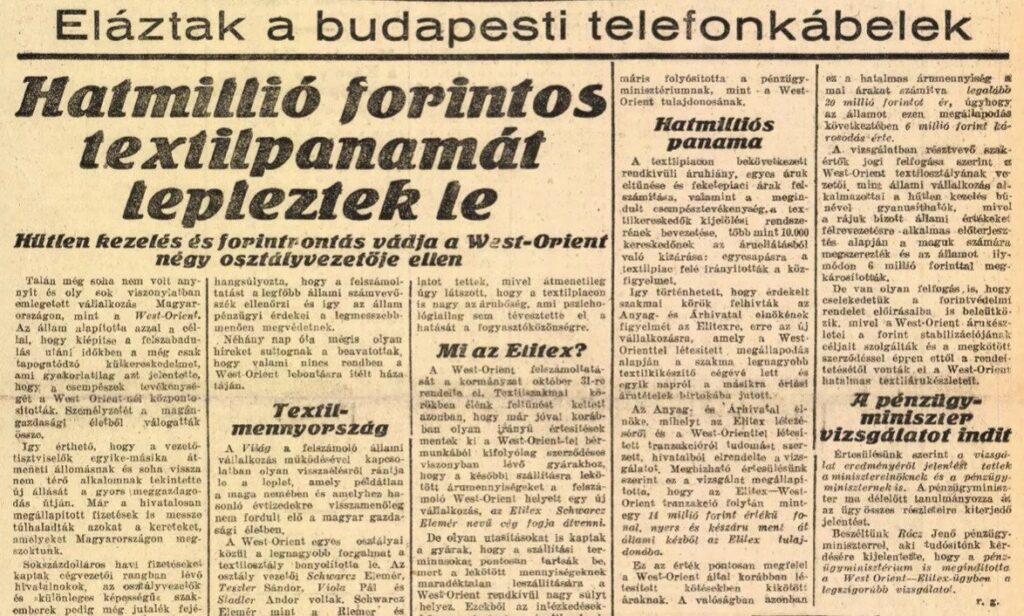
source: Arcanum
After the first of August 1946, the stocks had to be (should have) been sold, thus setting a cover behind the issued money. There was a danger that, due to the expected lack of supply, the company would hold back the stock of goods, hoping for a rise in prices - which could have led to rapid inflation of the new money. That is why Sándor Rónai , Minister of Trade and Cooperatives, asked Zoltán Vas that the Economic Council order the restricted management, which would prevent possible abuse. There was no order for restricted management, and the Communist Party tried to expropriate the accumulated stocks - which were officially owned by the state - and divert the income to its own coffers.
Indeed, only a fraction of the goods were sold, but they were not put on the market with state supervision and distribution either, but West-Orient itself went to many settlements of the country with trucks and sold the products from the cars. With this, retailers were eliminated from the sale, endangering their livelihoods, and shook people's confidence in the continuity of supply, which threatened the value stability and stability of the forint.
Dezső Sulyok also started against West-Orient
According to the news reports of the time, West-Orient was the state within the state, as all imports went through them, but it was only possible to export if the company participated in the business. News of the spectacular abuses quickly spread, and in the first days of August, several interpellations were heard in the National Assembly regarding West-Orient's frauds. Dezső Sulyok put it bluntly that "the General Economic Council founded [the company] with the stated aim of driving the devil out of economic life with Beelzebub". In his speech, he mentions that the company's employees were paid $1,200 a month, all during a period of hyperinflation. By the fall of 1946, the Communists' top company was attacked with such vehemence both on political and public lines that they were forced to liquidate it. But even before that, another communist party company was created, a company called Elitex, whose owner, Elemér Schwarz, previously worked in West-Orient.
With the new company, they caused even more damage
The goal was to somehow transfer the amount of goods in the possession of West-Orient to the party assets. Elitex bought up West's stock at a deep price, causing multi-million damage to the country and risking the stability of the forint, which had just been introduced, being shaken. Following a complaint, the General Economic Council ordered an investigation, the result of which was – not surprisingly – that no abuse of any kind occurred during the company's operation.
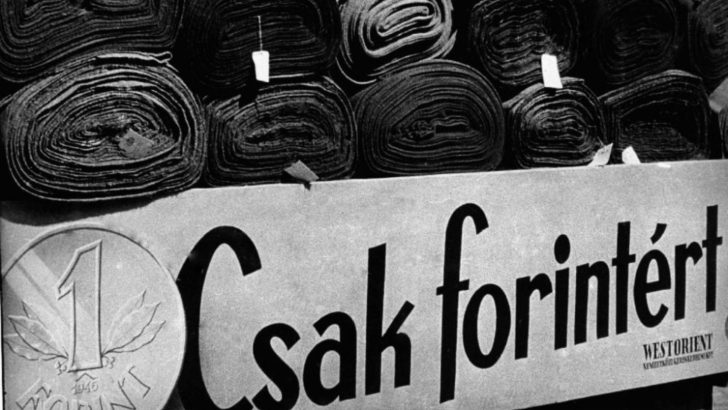
image: National Photo Gallery
On October 31, 1946, West-Orient ceased to exist - at least under that name. MKP established Magyar Külforgalmi Rt., which can actually be considered the successor of West. In parallel with this, the also very early communist party company, the Kollektíva Szövetkezet, was also transformed, the Eastern European Trade Company was established, whose management was taken over in the spring of 1947 by György Oblath , the same Oblath who became one of the defining figures of the foreign trade interest group in the sixties - about more to come later.
Ernő Villányi , the brother of the head of the Economic Police Department operating within the political police . The company cooperated closely with the political police, and part of the income from illegal activities strengthened the state defense.
By the end of 1946, the communists were already supervising foreign trade
We can say that by the end of 1946, Hungary's foreign trade was actually controlled by the communists with the help of their companies that expanded like octopuses.
We can talk about significant foreign trade only from 1947, before that international trade was mainly smuggling, which was also the privilege of the communists. By 1947, private companies no longer received export and import licenses at all, this was only available to so-called state-owned communist party companies, even though the nationalization of trade was officially completed only in 1949. This extremely conscious and rapid transition could only be carried out if the Muscovite leaders came home with ready-made plans and execution instructions. The method has already been tried: starting in the twenties, when securing the financial background of the Soviet Union, emphasis was placed on the monopolization of foreign trade activity, and this system was secretly transferred to Hungarian conditions as well.
Therefore, when we consider the first steps of the Sovietization of the country, in addition to the establishment of the political police, the selection of those working in the judiciary and public administration, the establishment of the people's courts and the establishment of the legal background of terror, we must also mention the expropriation of foreign trade. The "Szörny Rt." already in the fall of 1944, he set out to create the most extreme concentration of capital in our country, which was realized in the course of history. Karel Bartošek summarized the essence of this as follows: "Since the beginning of the communist movement, the task was not only to satisfy the hunger for ideas, but also to generate the money necessary to reward people who serve the ideas. As early as 1919, Moscow also resorted to precious stones, sapphires, pearls of truth - the "spoils of the revolution" to "help the revolutionary movement", and slowly diplomats or secret agents began to actively participate in the transfer of these treasures. […]
The archival materials, at least those that are no longer secret, make one realize the boundless cynicism of the "protectors of the poor" - who, however, can no longer lie and distort the truth for this very reason. The historian must say that the communist movement, as a child of the twentieth century, contains all the characteristics of this century's capitalism. Those parties that proclaim the end of the power of capital, at the same time, act according to the logic of capital.
The party leaders and the people in their service behave like shrewd entrepreneurs and use without the slightest inhibition any method that serves the benefit and enrichment of the "enterprise". It seems that the capitalist entrepreneurial activity of the communist apparatuses is especially fulfilled after the Second World War.
(to be continued)
Source: PestiSrácok
Author: historian Zsuzsanna Borvendég
(Cover photo: MTI/Jenő Papp)

